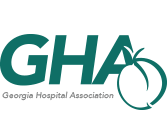The opioid epidemic that has caused such great damage to individuals and families in Clayton County and throughout Georgia has been fueled in large part by dramatically rising rates of prescription drug abuse.
According to the U.S. Centers for Disease Control and Prevention (CDC), about half of all deaths that are due to opioid overdose involve the misuse of a prescription medication. Applying this nationwide statistic to Georgia, this would mean that about 550 people in the state died from prescription medication overdose in 2013, and about 600 died from the same cause in 2014.
Combating the catastrophic impact of prescription drug abuse and addiction is a complex matter that will require a multifaceted approach. But every person can play a role in this effort. One small yet essential step that all residents of Clayton County can take is to ensure that all outdated or otherwise unneeded prescription medications are disposed of in a safe and secure manner.
The Importance of Safe Medication Disposal
Safely disposing of prescription medications has a variety of benefits. In addition to reducing the likelihood that an individual will intentionally abuse these dangerous drugs, following safe disposal tips also eliminates the possibility that a person will unintentionally ingest the drugs.
Also, for people who are taking multiple medications, the effective and safe disposal of unneeded prescription medications can ensure that they do not compromise their health by mixing old and new medications.
When all community members follow proper procedures for the storage and disposal of prescription medications, the results can include enhanced personal safety, increased community wellness, and reduced levels of prescription drug abuse and related crimes.
How to Safely Dispose of Prescription Medications
The following are excellent initial sources of information regarding the safe disposal of prescription medications: the instructions that accompanied the drugs, the physician who prescribed the drugs, and the pharmacy that filled the prescription.
In addition to these sources, the Georgia Department of Law’s Consumer Protection Unit (CPU) has also established a list of safe and effective procedures for the disposal of prescription medications. The following are highlights of the CPU’s tips:
- If the label on the prescription medication contains disposal information, follow the steps that are listed there.
- Unless specifically directed by a physician, pharmacist, or another expert, never dispose of prescription medications by pouring them down a household drain or flushing them down a toilet.
- If your community sponsors drug take-back days or similar events, keep all medications secure until they can be disposed of via such an event.
If a person wishes to dispose of his or her prescription medications by throwing them into the garbage, the CPU provides the following advice:
- All prescription medications should be removed from their original containers prior to being thrown into the garbage. This will limit their ability to be recognized by individuals who may search through trash collection sites in an attempt to illicitly acquire opioids.
- Once the prescription medications have been removed from their containers, they should be mixed with one or more undesirable items, such as used coffee grounds, sand from a cat’s litter box, or a similarly off-putting substance. Again, this will disguise their presence and will also reduce the likelihood that they will be accidentally ingested.
- The mixture of prescription medications and undesirable items should be placed into a sealable plastic bag or another container that can be closed. This will limit both intentional and accidental access to the drugs.
- This sealed mixture should ideally be placed into a garbage bag that can be tied closed, thus providing another barrier between the prescription medications and anyone who may desire them or accidentally come into contact with them.
It is also important to eradicate all personal information on prescription medication containers before disposing of these items. The best way to do this is to remove and shred any labels prior to placing the empty containers into the garbage. If you cannot remove the label, be sure to use a pen, magic marker, or another writing utensil to black out your name, the name of the medication, the name of the prescribing physician, and all other information.
Prescription Medication Disposal Event in Clayton County
The Clayton County Water Authority sponsors an annual Household Waste Amnesty Day when county residents may dispose of a variety of dangerous substances, including both over-the-counter and prescription medications.
Certain cities within Clayton County may hold similar events or may have other specific advice regarding the safe disposal of prescription medications. To learn about prescription medication disposal resources near you, contact your local police department or city government office.






